Economy
Dangote Refinery Halts Sale of Petroleum Products in Naira, Cites Dollar Obligations

By Our Correspondent
Dangote Petroleum Refinery has announced a temporary suspension of the sale of petroleum products in naira, citing the need to align its sales currency with its crude oil procurement obligations, which are denominated in U.S. dollars.
The announcement was contained in a notice sent to petroleum marketers on Wednesday afternoon.
Reason for the Suspension
In the statement, the refinery explained that the value of petroleum products sold in naira had exceeded the naira-denominated crude it had received, making it necessary to adjust its sales currency temporarily.
“We wish to inform you that Dangote Petroleum Refinery has temporarily halted the sale of petroleum products in naira. This decision is necessary to avoid a mismatch between our sales proceeds and our crude oil purchase obligations, which are currently denominated in U.S. dollars,” the notice stated.
“To date, our sales of petroleum products in naira have exceeded the value of naira-denominated crude we have received. As a result, we must temporarily adjust our sales currency to align with our crude procurement currency,” it added.
Refinery Denies Fraud Allegations
The company also dismissed reports alleging that it had suspended loading due to ticketing fraud, describing such claims as “malicious falsehood.”
“Our attention has also been drawn to reports on the internet claiming that we are stopping loading due to an incident of ticketing fraud. This is a malicious falsehood. Our systems are robust, and we have had no fraud issues,” the refinery clarified.
Commitment to Nigerian Market
Despite the suspension, Dangote Refinery reassured marketers and consumers of its commitment to the Nigerian market. It promised to resume sales in naira once it receives an allocation of naira-denominated crude from the Nigerian National Petroleum Corporation (NNPC).
“We remain committed to serving the Nigerian market efficiently and sustainably. As soon as we receive an allocation of naira-denominated crude cargoes from NNPC, we will promptly resume petroleum product sales in naira. We appreciate your understanding and cooperation during this period,” the statement concluded.
Agreement
📢 PUBLIC ANNOUNCEMENT
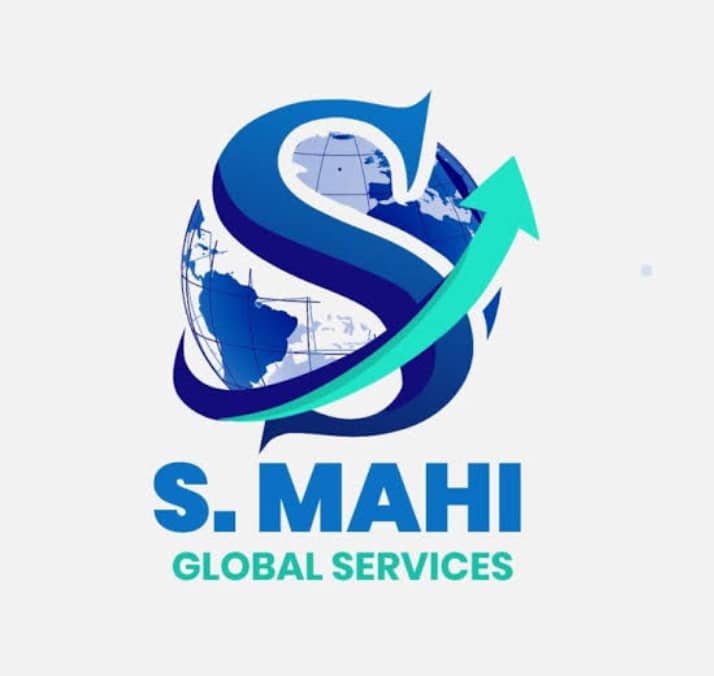
S-Mahi Global Services Ltd has launched a new nationwide online employment platform to fight unemployment and connect young people with major job opportunities both locally and internationally.
In this program:
= Agents will be recruited in each of the 774 Local Government Areas across Nigeria. Every LGA will have 6 agents and a dedicated website to support the people of that area.
= Likewise, anyone seeking employment – from SSCE up to Professor – can register and be connected with top companies, institutions, and NGOs in Nigeria and abroad.
= In this first phase, 4,644 job openings have been announced, and more opportunities will continue to open nationwide.
—
What Makes This Platform Different:
= It connects every community with Local Governments, States, and the entire nation.
= It gives young people direct access to employment through screening and company linkages.
= A special Application has been designed and will soon be officially launched at ICC Abuja to make the job search process easier.
—
Eligibility for Employment:
= All Nigerians between the ages of 18 and 35 can apply.
= Minimum educational requirement: SSCE (higher qualifications have an added advantage).
—
Registration Fee:
= Each applicant is to pay ₦2,500 as a processing and screening fee.
= This is not a payment to buy jobs. It is strictly for administrative and screening purposes.
= Only successful applicants will be contacted via email, and screening will be conducted in every state.
—
⚠️ IMPORTANT NOTICE:
S-Mahi Global Services Ltd does not call applicants on the phone regarding job offers.
All official communication will be done only through our company email:
📧 smahiglobalservices9@gmail.com
If anyone contacts you by phone claiming to represent the company for job offers, please ignore and report immediately.
—
🌐 Website: www.smahiglobalservices.com
📞 Contact (for inquiries only, not for job offers): +234 / +2349052373245
+2348069278540/+234808 024 7401
🔊 S-Mahi Global Services Ltd – Together we fight unemployment!
Economy
Cooperative society key driver of economic growth – Adamawa Gov
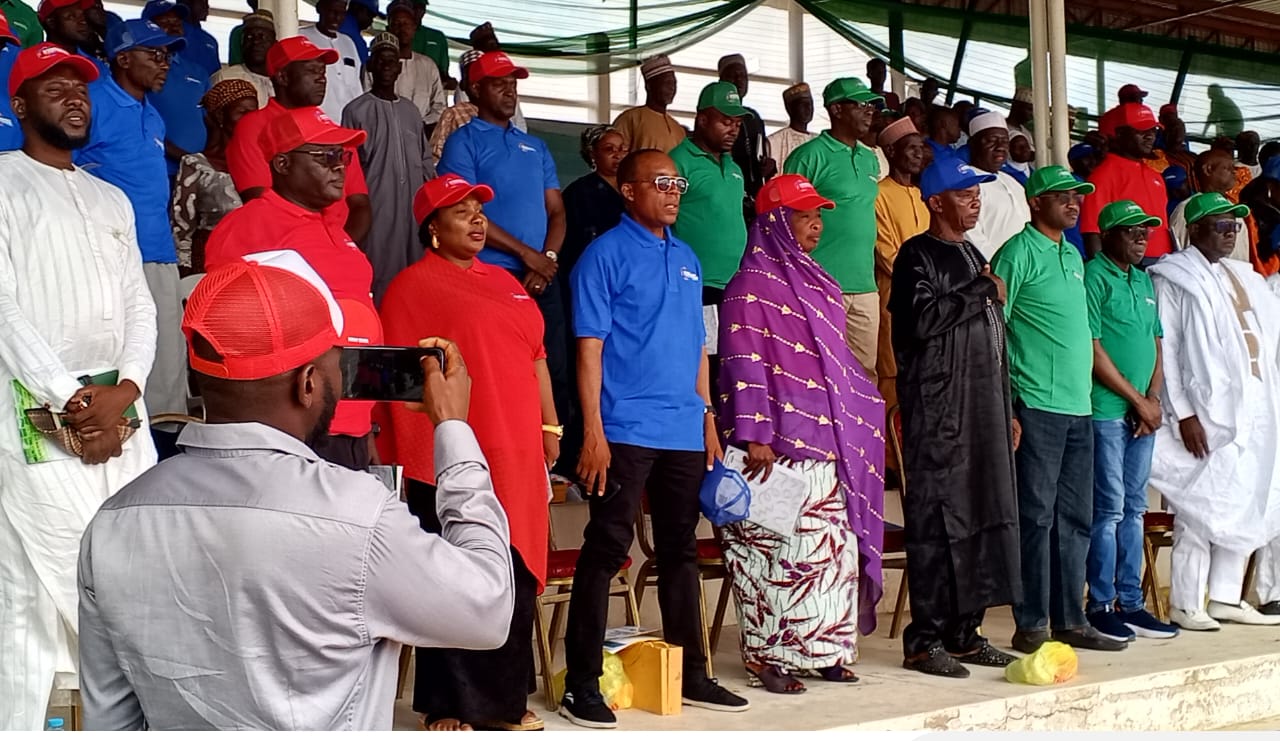
By AOur Correspondent
Gov. Ahmadu Fintiri of Adamawa, has described the cooperative society as a key driver for economic growth and sustainable solutions in the society.
Fintiri stated this at the commemoration of the International Day of Cooperative 2025 on Saturday in Yola.
The event is with the theme: “Cooperatives, Driving Inclusive and Sustainable Solutions for a Better World”.
Fintiri who was represented by Hammanjumba Gatugel, Commissioner, Ministry of Entrepreneurship Development, said government had invested heavily in the sector, for the economic development of the state.
“Here in Adamawa, we can boldly say that Gov. Fintiri is cooperative friendly.
“On realisation of the importance of cooperatives in creating job opportunities and wealth creation, he has been investing so much in this sub sector through this ministry.
“He has consistently empowered farmers of cooperative societies with agricultural inputs, like fertilisers, hybrid seeds, herbicides, insecticides, knapsacks and water pumps, for dry season farming to mention but a few,” he said.
Alhaji In Yunusa Gafai, Chief Operating Officer, Agribusiness Support Programme (ADAS-P) confirmed that through the state Agribusiness Cooperative Financing Agency, farmers had access to farming inputs and irrigation equipment.
According to him, these have empowered thousands of rural farmers and lifted many out of poverty in the state.
He reaffirmed that the cooperative remains one of the strongest vehicles for empowering communities and achieving inclusive economic growth.
In his address, Mr Mamman Malgwi, Chairman Local Organising Committee, encouraged people in the state to form cooperative society, for maximum benefit that would drive them out of poverty.
According to him, cooperative society is one of the legitimate ways of earning money for economic growth and attraction to government support.
The commemoration witnessed the presentation of an award of excellence to outstanding cooperative societies in the state
Economy
Dr. Nasir Ibrahim, FCE Zuba Provost Forge Vision for Nigeria’s Next Chapter
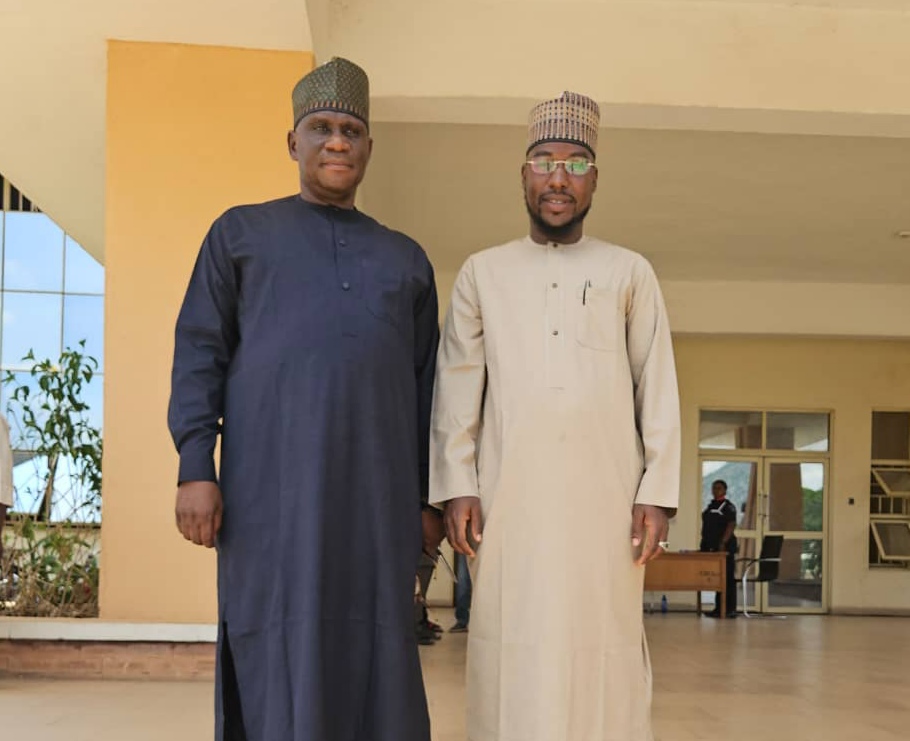
By Our Correspondent
In a significant move toward fostering national dialogue on Nigeria’s political and economic development, Dr. Nasir Ibrahim, popularly known as the Magayakin Kumfulata, paid a courtesy visit earlier today to Dr. Mundi, the Provost of the Federal College of Education (FCE), Zuba, Abuja.
The meeting, held at the Provost’s office, focused on exchanging ideas and perspectives aimed at advancing Nigeria amidst its current challenges. It provided a platform for thoughtful discussions on critical national issues, particularly emphasizing leadership, education, economic diversification, and youth empowerment.
During the conversation, Dr. Mundi provided profound insights into Nigeria’s political climate, highlighting the urgent need for strong, visionary leadership and a culture of accountability. He underscored the pivotal role civic education must play in nurturing democratic values among citizens, stressing that institutions like Colleges of Education have a crucial responsibility in building national consciousness and grooming future leaders with the right mindset.
On the economic front, Dr. Mundi reflected on pressing issues such as rising inflation, unemployment, and Nigeria’s long-standing over-reliance on oil revenues. He advocated for immediate and strategic economic diversification, calling for a renewed focus on agriculture, technology, and education as key sectors to drive sustainable growth.
According to Dr. Mundi, empowering the education sector to actively contribute to economic development is critical. He emphasized promoting entrepreneurship, enhancing skill acquisition programs among students, and fostering strong partnerships between educational institutions and industry stakeholders to bridge the skills gap and prepare graduates for the demands of the modern workforce.
Speaking after the meeting, Dr. Nasir Ibrahim described the engagement as highly productive and inspiring, praising Dr. Mundi’s visionary approach to national issues. He noted that the discussions offered practical and actionable ideas for stimulating Nigeria’s political and economic transformation.
Dr. Mundi, in turn, expressed his appreciation for the visit and reiterated his openness to future collaborations geared toward promoting national progress and societal development.
The meeting ended on a positive note, with both leaders reaffirming their commitment to contributing meaningfully to Nigeria’s journey toward sustainable growth and prosperity.
-

 Politics2 years ago
Politics2 years agoFormer Gombe State APC Promoters Forum Chairman Attacked Following Political Commentary
-

 Leadership2 years ago
Leadership2 years agoBreaking: African Union Appoints Pantami as Co-Chair of the 4th Industrial Revolution Policy Council
-
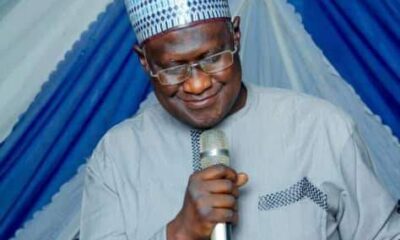
 Appointment1 year ago
Appointment1 year agoGombe State Indigene, Appointed New Vice Chancellor (ATBU)
-
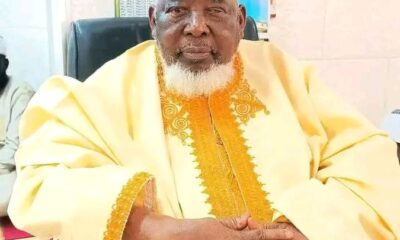
 Death12 months ago
Death12 months agoProminent Nigerian Islamic Scholar, Sheikh Sa’idu Hassan Jingir, Passes Away
-
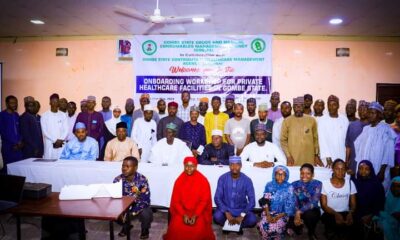
 Health2 years ago
Health2 years agoGombe State Organizes Onboarding Workshop for Private Healthcare Facilities
-
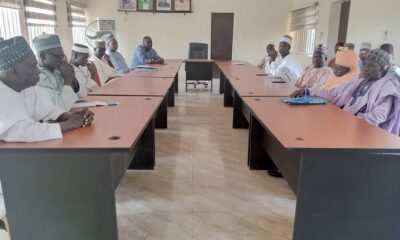
 Water2 years ago
Water2 years agoGombe Government Mobilizes Stakeholders to Combat Illegal Water Connections
-
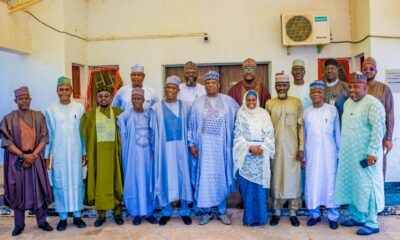
 Politics2 years ago
Politics2 years agoGombe State Inaugurates Human Capital Development Council
-
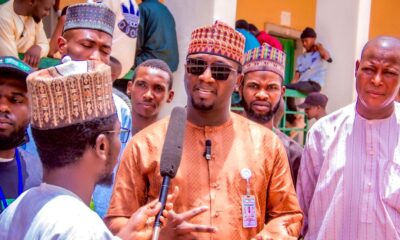
 Politics2 years ago
Politics2 years agoGombe State Launches Presidential Palliative Program (PPP) to Aid Small Businesses
